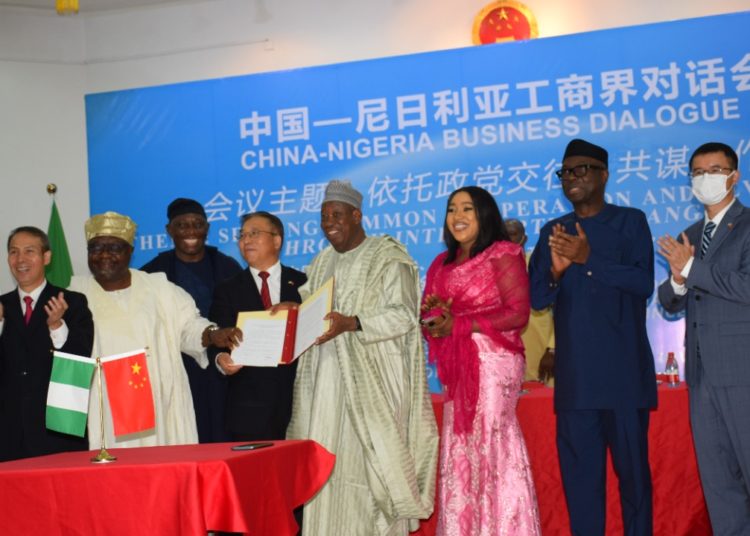The Government of Kano State has signed a Letter of Intent to industrialise the agriculture sector and also to modernise animal husbandry by initiating ranching methods to curb the lingering clashes between farmers and herdsmen in the state and Nigeria in general.
This was the focus of the China-Nigeria Business Dialogue with the theme, ‘Seeking Common Cooperation and Development Through Interparty Exchanges’, which was hosted by the Chinese Embassy in Abuja on Wednesday.
The dialogue involved interactions at ministerial level of officials from the International Development Department of the Central Working Committee of the Communist Party of China (CPC), Nigeria’s ruling All Progressives Congress (APC) National Working Committee (NWC) and the Fujian Province of China.
The Chinese Ambassador to Nigeria, Cui Jianchun, told reporters in an interview that the partnership was to prioritise areas of trade and investment and to strengthen the ties with Nigeria especially at all levels of government.
“I think we can prioritize areas, for example the Fujian province and Kano state, they can work together from the state level to and other levels. I think this is a very innovative way to expedite and accelerate development,” he said, adding that China will replicate the programme in all other states of the Nigerian federation.
Kano State governor, Abdullahi Umar Ganduje, said the idea behind the partnership between political parties was to ensure entrepreneurship in government.
“Political party is the platform for recruiting government officials in elective and appointive positions to provide assistance to the people who voted for the politicians.
“So, Kano State is in good relationship with the Fujian province in China. Kano is the commercial nerve center of northern Nigeria and also a commercial nerve center of some West African countries and Fujian is a commercial province in China. So, the agreement that we have signed will see us through different areas.
“Kano is an agricultural state in Nigeria, we produce a lot of grains. Kano has the largest grain market in West Africa and you find a lot of Chinese in the commercial activities in that market. So, you can see that we need a lot of processing in order to convert those grains into finished products. We require collaboration in terms of machinery and in terms of personnel manpower for production.
“Another area is that of hides and skin. Kano has the highest number of finished products for hides and skin because we get a lot from Niger and Chad therefore we have a number of tanneries. But we export the hides and skin instead of converting it to finished products. So, we need collaboration with Fujian Province whereby the hides and skin can be converted into finished products for exports and for consumption,” he said.
Another important area of collaboration, according to the governor, was ranching, especially in producing grass for cattle, which he said will reduce the migration of herdsmen from one state to another and reduce the conflict between herdsmen and farmers.
“We are discussing with them on how to produce grasses that are good for cattle so that we can domesticate our herdsmen and put them in one place to reduce the moving from one place to another,” he said.
He also noted that part of the agreement is to revamp the Textile industry in Kano and the Chinese could help in providing the needed investment in that sector.
National Secretary of the APC, Iyiola Omisore, told reporters that the CPC of China and the Nigerian ruling party are working on party engagement to improve relations on politics, business and governance, adding that Nigeria is striving to improve its non-oil exports, which index is not good enough at the moment.





